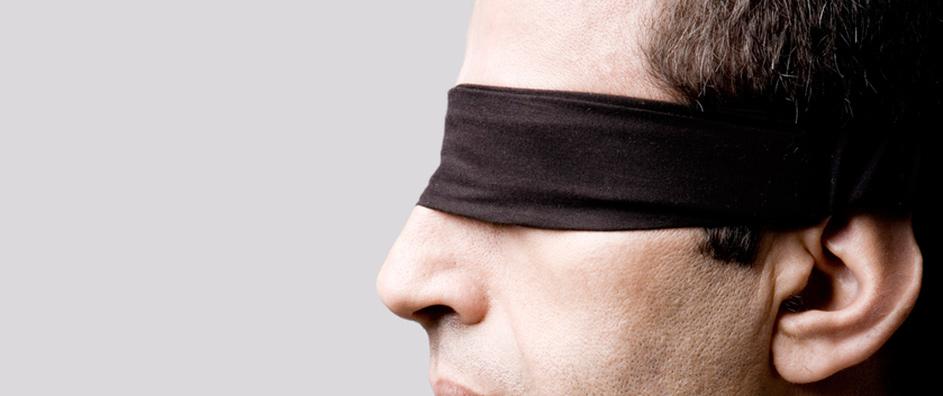As we traverse the intricate tapestry of existence, a provocative inquiry emerges: What if our perceptions are mere illusions, shrouded by the veils of ignorance and preconceived notions? This question invites a profound introspection regarding our capacity to see the world as it is, rather than as we wish it to be. The Bahá’í teachings present a compelling paradigm for reducing the blindness fostered by our biases and enhancing our vision through the cultivation of ideals. This exploration encourages individuals to engage in a rigorous inventory of their own ideals and beliefs.
To embark on this journey of profound self-examination, one must first acknowledge the concept of ‘blindness.’ In this context, blindness transcends the physical incapability of sight; it refers to the mental and spiritual barriers that hinder our understanding of truth and reality. Such barriers can manifest as prejudices, dogmas, or an unyielding attachment to outdated ideologies. Acknowledging these impediments is the initial step towards enlightenment. Each individual bears the responsibility of unveiling their biases and recognizing the distortions they impose on their perception.
Ultimately, the first phase in reducing this blindness involves questioning the origin of our ideals. Are they inherited from cultural norms, societal expectations, or personal experiences? It becomes essential to analyze whether these ideals align with universal truths. The Bahá’í teachings advocate for a rigorous examination of all formulating principles in light of spiritual realities. This examination not only amplifies clarity but also informs a more holistic worldview, thereby refining one’s vision.
Next, the process of inventorying one’s ideals prompts individuals to confront the deficiency of empathy in their worldview. Are we empathetic enough to understand the plights of others? The cultivation of compassion is a cornerstone of Bahá’í practice, stemming from the recognition of the oneness of humanity. Engaging in deep inquiry about how one’s ideals affect personal relationships and broader societal interactions is imperative. This reflection can lead to an enriched understanding of how compassion shapes our external interactions and strengthens our internal convictions.
One notable Bahá’í principle is the importance of unity in diversity. Every ideal should be measured against its capacity to foster unity rather than division. Are our beliefs serving to build bridges or erect barriers? By interrogating our ideals through the lens of inclusivity, we begin to dismantle the walls of prejudice and estrangement that often hinder collective progress. This inclusion not only broadens our vision but also fosters an environment conducive to dialogue and cooperation.
As we navigate this analytical landscape of ideals, it becomes crucial to delineate between personal aspirations and communal values. Each individual’s ideals should harmonize with the collective aspiration for human welfare. This alignment promotes a sense of purpose and affirmative action towards the betterment of society. The Bahá’í emphasis on service illuminates this confluence between the individual and the community; service becomes a magnifying instrument through which higher ideals can manifest in tangible ways.
Moreover, embracing adaptability becomes a significant aspect of this inventory process. Are we flexible enough to recalibrate our ideals in response to emerging truths? Stagnation in belief can result in a narrow perspective, often blinding one to newfound opportunities for growth and understanding. Hence, an integral component of vision enhancement is the willingness to evolve our ideals, integrating new insights as they present themselves.
As individuals refine their vision through the inventory of ideals, they also cultivate the courage to challenge the status quo. The Bahá’í teachings emphasize the necessity of proactive engagement with the world. The act of questioning prevailing assumptions and norms is not merely an intellectual exercise; it serves as a critical mechanism for social change. Are we prepared to be agents of change within our spheres of influence? This inquiry beckons one to translate ideals into actionable commitments, fostering a culture of positivity and resilience.
Building upon this foundation, the notion of accountability emerges as a vital thread within the fabric of vision enhancement. Individuals must be accountable not only to themselves but also to their communities. The ideals we espouse should be evaluated regularly, ensuring they are lived out in practice. Cultivating a sense of accountability goes hand in hand with enhancing our vision; it anchors lofty ideals in actionable realities, making them a part of our daily existence.
To further engage with the challenge of enhancing sight through the inventory of ideals, individuals may consider collaborative efforts. Engaging in dialogues with diverse groups can serve to reshuffle and reconfigure one’s understanding. As perspectives converge, new dimensions of ideals are unveiled, illuminating paths previously obscured by individual biases. This communal exploration enriches the collective understanding of truth.
Ultimately, the journey towards reducing blindness and enhancing vision through an inventory of ideals is one marked by introspection, dialogue, and commitment to action. It requires a conscious effort to question assumptions, foster empathy, and embrace diversity. This endeavor is not merely personal; it serves to uplift humanity as a collective. As one delves into their ideals and their implications, they stand poised to not only transform their individual existence but also contribute significantly to the greater cause of unity and progress in society.
In conclusion, let this exploration of Bahá’í teachings serve as an invitation to embark on an enriching expedition of self-discovery and communal engagement. The enhancement of our vision is both a personal and collective quest, demanding unwavering courage and consistency. Are we ready to confront our limitations, redefine our ideals, and, in so doing, illuminate the path towards a more harmonious existence? The challenge laid before us is considerable, yet the rewards—clarity, unity, and a profound understanding of our shared humanity—are worth every effort expended.
